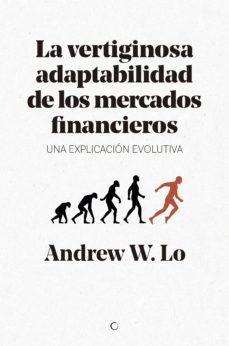Imprescindibles
Ficción
No Ficción
Ciencias y tecnología Biología Ciencias Ciencias naturales Divulgación científica Informática Ingeniería Matemáticas Medicina Salud y dietas Filología Biblioteconomía Estudios filológicos Estudios lingüísticos Estudios literarios Historia y crítica de la Literatura
Humanidades Autoayuda y espiritualidad Ciencias humanas Derecho Economía y Empresa Psicología y Pedagogía Filosofía Sociología Historia Arqueología Biografías Historia de España Historia Universal Historia por países
Infantil
Juvenil
#Jóvenes lectores Narrativa juvenil Clásicos adaptados Libros Wattpad Libros Booktok Libros de influencers Libros de Youtubers Libros Spicy Juveniles Libros LGTBIQ+ Temas sociales Libros ciencia ficción Libros de acción y aventura Cómic y manga juvenil Cómic juvenil Manga Shonen Manga Shojo Autores destacados Jennifer L. Armentrout Eloy Moreno Nerea Llanes Hannah Nicole Maehrer
Libros de fantasía Cozy Fantasy Dark academia Hadas y Fae Romantasy Royal Fantasy Urban Fantasy Vampiros y hombres lobo Otros Misterio y terror Cozy mistery Policiaca Spooky Terror Thriller y suspense Otros
Libros románticos y de amor Dark Romance Clean Romance Cowboy Romance Mafia y amor Romance dramatico Romcom libros Sport Romance Otros Clichés Enemies to Lovers Friends to Lovers Hermanastros Slow Burn Fake Dating Triángulo amoroso
Cómic y manga
Novela gráfica Novela gráfica americana Novela gráfica europea Novela gráfica de otros países Personajes, series y sagas Series y sagas Star Wars Superhéroes Cómics DC Cómics Marvel Cómics otros superhéroes Cómics Valiant
eBooks
Literatura Contemporánea Narrativa fantástica Novela de ciencia ficción Novela de terror Novela histórica Novela negra Novela romántica y erótica Juvenil Más de 13 años Más de 15 años Infantil eBooks infantiles
Humanidades Autoayuda y espiritualidad Ciencias humanas Economía y Empresa Psicología y Pedagogía Filosofía Historia Historia de España Historia Universal Arte Cine Música Historia del arte
Ciencia y tecnología Ciencias naturales Divulgación científica Medicina Salud y dietas Filología Estudios lingüísticos Estudios literarios Historia y crítica de la Literatura Estilo de vida Cocina Guías de viaje Ocio y deportes
Andrew W. Lo
Recibe novedades de ANDREW W. LO directamente en tu email
Filtros
Del 1 al 2 de 2
ANDREW W. LO y A. CRAIG MACKINLAY
PRINCETON UNIVERSITY PRESS 9780691057743
For over half a century, financial experts have regarded the movements of markets as a random walk - unpredictable meanderings akin to a drunkard's unsteady gait - and this hypothesis has become a cornerstone of modern financial economics and many investment strategies. In this text, the authors argue that markets are not completely random after all and that predictable components do exist. They provide an account of the techniques for detecting predictabilities and evaluating their statistical and economic significance, and offer a glimpse into the financial technologies of the future. 'This book collects together and integrates an important body of research by two distinguished financial economists. The essays in the book explore the limits of the random walk model of security prices using insightful and rigorous statistical methods. The empirical findings are interpreted using modern theories of asset prices, and the resulting anomalies are used to challenge the theories in constructive ways. This book is highly recommended to academic and private-sector economists who are interested in understanding better the behavior of financial market returns.' Lars Peter Hansen, University of Chicago
Ver más
Tapa dura
Antoni Bosch Editor, S.A. 9788494627194
¿Son los mercados racionales y eficientes, tal como asume la moderna teoría financiera, o son irracionales e ineficientes, como sostienen los economistas conductuales y como sugieren las burbujas y las crisis financieras?Los economistas no se ponen de acuerdo sobre si los inversores y los mercados son racionales y eficientes, tal y como supone la moderna teoria de las finanzas, o irracionales e ineficientes, tal y como creen los economistas del comportamiento y como sugieren las burbujas y las crisis financieras. De como se resuelva este debate depende que se gestionen bien las inversiones financieras. Con este libro Andrew W. Lo zanja esta cuestion dandole un nuevo marco conceptual: la Hipotesis de los Mercados Adaptativos, en la que la conviven racionalidad y la irracionalidad.Basandose en profundos conocimientos de psicologia, biologia evolutiva, neurociencia e inteligencia artificial, esta obra sostiene que la teoria de los mercados eficientes no es erronea sino incompleta. Cuando los mercados son inestables, los inversores reaccionan instintivamente, creando ineficiencias que otros pueden aprovechar. El nuevo paradigma del autor explica como la evolucion de las finanzas, que ocurre a la velocidad del pensamiento, condiciona el comportamiento de los inversores y de los mercados. Un hecho que ponen de ...
Ver más
Tapa blanda
Del 1 al 2 de 2
























